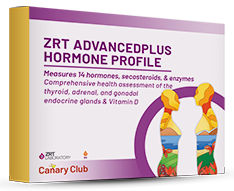The Centers for Disease Control reports that 12-20% of new moms - about 1 million women in the US each year - develop postpartum depression (PPD). However, the real number is even higher. This data reflects only those reporting symptoms of postpartum depression after live births. While many women don't report their experiences, many others develop perinatal mental illnesses outside of PPD, and all women are susceptible to these illnesses regardless of whether they have a live birth, miscarriage, stillbirth or termination. Together, perinatal mood and anxiety disorders are the number one complication of childbirth.
 Symptoms of baby blues can range from sadness and mood swings to irritability, sleep changes, anhedonia, excessive worry to lack of interest in her baby. For most women, these symptoms won't last longer than a few days, with the majority feeling better within a week or two of becoming a new mother. For others, the situation may be more serious when symptoms last for much longer. If negative emotions persist for more than a couple of weeks, recommend professional psychiatric help as your patient may be suffering major postpartum depression.
Symptoms of baby blues can range from sadness and mood swings to irritability, sleep changes, anhedonia, excessive worry to lack of interest in her baby. For most women, these symptoms won't last longer than a few days, with the majority feeling better within a week or two of becoming a new mother. For others, the situation may be more serious when symptoms last for much longer. If negative emotions persist for more than a couple of weeks, recommend professional psychiatric help as your patient may be suffering major postpartum depression.
What exactly causes the baby blues?
No one knows for sure. Hormonal changes in a woman's body may trigger its symptoms. During pregnancy, estrogen and progesterone increase significantly. In the first 24 hours after childbirth, the amount of these hormones drops rapidly and keeps dropping to the level they were before the woman became pregnant. A postpartum drop in thyroid hormone levels may also induce feelings of sadness. Researchers think these changes in hormones may lead to depression, just as smaller changes in hormones can affect a woman's mood before she gets her menstrual period.
What are the most important hormone imbalances to consider?
Progesterone levels plunge after delivery. Remember that progesterone is produced by the corpus luteum after ovulation. New mothers typically do not begin ovulating right away, particularly if they are breastfeeding. Thus, progesterone levels may be low for several months. When saliva testing shows low progesterone, supplementing at physiologic doses of 20-30mg can do a great deal to temper mood swings associated with the baby blues.
Adrenal function is also important to consider. A recent study from the University of Toronto examined cortisol in new mothers. Researchers found that women with higher levels of cortisol postpartum are more attracted to their babies' scents and more attentive to them. These behaviors, in turn, have been associated with a stronger mother-infant bond. If adrenal fatigue is present, these bonding behaviors may suffer.
Vitamin D deficiency is increasingly associated with depression. While there are no studies specifically looking at vitamin D status and postpartum depression, there have been many studies confirming that low vitamin D levels are associated with depression. In the last century, depression has increased as vitamin D levels have fallen. Vitamin D has profound effects on the brain's neurotransmitters. Thus, it is pertinent to test your vitamin D levels and supplement if levels are low or sub-optimal.
Postpartum thyroid changes, referred to as postpartum thyroiditis, can affect 5-10% of women. Symptoms can range from hyperthyroid (anxiety, palpitations, fatigue, and weight loss) to hypothyroid symptoms (fatigue, weight gain, constipation, dry skin, and depression), with some women manifesting both. Most affected women will have a return of their thyroid function to normal within 12-18 months of the onset of symptoms, but approximately 20% of those that go into a hypothyroid phase will remain hypothyroid. Testing thyroid hormones and antibodies may be warranted.
If you are experiencing postpartum depression, we recommend testing your vitamin D levels in addition to your thyroid, adrenal, and sex hormones estradiol and progesterone. Our AdvancedPlus Comprehensive Hormone Profile includes all of these tests, at the best consolidated price available anywhere. You can collect your samples from the comfort of your own home. Evaluating and balancing hormones can go a long way to helping new moms feel great!
ZRT AdvancedPlus Profile
This innovative combination, recommended by Dr. Richard Shames, MD, Dr. Richard Shames, MD, is a specialist in endocrinology hormones. Practices as a Consulting Physician and Personal Health Coach, focusing on thyroid and adrenal disorders and their many related conditions, offers a more cost-effective assessment of the major hormones produced by the thyroid, adrenal, and gonad glands, along with an evaluation of Vitamin D levels. This consolidated approach streamlines the testing process offering greater value
- Sex steroid hormones (in saliva): Estradiol (E2), Progesterone (Pg), and Testosterone (T)
- Adrenal Hormones (in saliva): DHEA-S (DS), Diurnal Cortisol (sampled 4x to show your full daily cortisol cycle)
- Thyroid hormones (in blood spot): TSH, fT3, fT4, TPOab
- Vitamin D (in blood spot): 25-OH, Total (D2, D3)
References:
CDC: Prevalence of Self-Reported Postpartum Depressive Symptoms --- 17 States, 2004--2005


